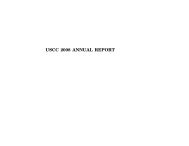e-commerce@its.best.uk - Fatal System Error
e-commerce@its.best.uk - Fatal System Error
e-commerce@its.best.uk - Fatal System Error
- No tags were found...
You also want an ePaper? Increase the reach of your titles
YUMPU automatically turns print PDFs into web optimized ePapers that Google loves.
international bodies to improve andstreamline procedures for the collectionof customs duties and VAT on smallconsignments of imports. Preliminaryfindings should be reported by the endof March 2000.Recommendation 7.12: the InlandRevenue and Customs and Exciseshould publish improved guidance fore-businesses, targeted at small andmedium sized enterprises, explainingtheir tax obligations and how thetax system will treat cross-bordertransactions.7.44 E-businesses, particularly small andmedium sized businesses, are unclear whatthe tax rules governing e-commerce are.The tax authorities need to produce clearguidance and publish it on the Web, perhapson DTI’s e-commerce resource centre on theWeb. This should be completed byNovember 1999.International coherence andagreement:Recommendation 7.13: the UK shouldcontinue to play a leading role in theOECD and in other internationalorganisations to achieve aninternationally agreed implementationof the framework for the taxation ofe-commerce agreed at the 1998Ottawa Ministerial conference.7.45 Unilateral action by the tax authoritiesin the UK or other countries would be likelyto result in different countries havingdifferent tax rules for e-commerce. Differenttax rules in different countries would be abarrier to businesses involved in internationaltrade and would increase their taxcompliance costs. And Governments needto keep pace with technologicaldevelopments to secure their tax base.7.46 Much has already been achievedinternationally. As a result, for example, ofthe Ministerial-level conference in Ottawalast October, the OECD has a two yearprogramme of work underway one-commerce tax issues (including royalties,VAT, the definition of “permanentestablishments” and transfer pricing, onwhich specific recommendations are madebelow). Similarly, in July last year EU FinanceMinisters agreed the following for VAT:existing VAT provisions should be adaptedto e-commerce on the basis of establishedinternational guidelines. There should beno new taxes;digitised products supplied by electronicmeans should be treated, for VAT purposes,as supplies of services (which means thatunlike physically supplied items such asbooks, CDs etc. they are not subject tocustoms duty); andthe place of taxation of services suppliedby electronic means should be the placeof consumption.7.47 The UK has been a driving force in theOECD and EU on the tax issues raised bye-commerce. It is vital that the UK not onlyplays a leading role in the OECD, which isthe <strong>best</strong> forum for agreement on theseissues, but also in other internationalorganisations – so progress continues to bemade towards an internationally agreedframework for the taxation of e-commerce.Recommendation 7.14: the UK shouldseek international examination of theimplications of e-commerce bettingand gaming for the tax yield fromthis sector.7.48 E-commerce has the potential tofacilitate the growth of Internet andtelephone-based betting and gaming, sothreatening the tax revenues raised in theUK from this sector. For example, “virtualcasinos” on the Internet currently escapeUK duties when not established here. Thisillustrates the need for internationalagreement in the OECD.7.49 There is currently no internationalframework for the taxation of betting andgaming. The UK is therefore seeking aninternational review of the implications ofInternet and telephone-based betting andgaming for the tax revenues raised fromthe sector. This should be initiated in theOECD by December 1999.E-<strong>commerce@its</strong>.<strong>best</strong>.<strong>uk</strong>39















